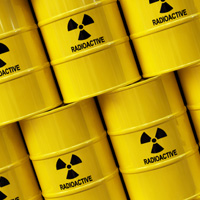
As world leaders prepare to meet in The Hague for the Nuclear Security Summit, the John D. and Catherine T. MacArthur Foundation today announced grants totaling more than $3 million to help prevent nuclear terrorism and strengthen nuclear security around the globe. The grants continue the Foundation’s efforts to cultivate nuclear security expertise and research aimed at preventing the theft or diversion of fissile materials to terrorist groups, as well as addressing security concerns arising from national efforts to develop nuclear capabilities.
“Nuclear terrorism is a credible possibility that requires sound security policies to prevent,” said MacArthur President Robert Gallucci. “The only strategy that will reduce the threat of nuclear terrorism significantly is to keep fissile material out of dangerous hands. These grants support some the leading institutions with the expertise needed to strengthen nuclear security around the globe.”
Gallucci will address an international gathering of nuclear security experts at the Nuclear Knowledge Summit in the Netherlands, to be held just days before world leaders gather for the third Nuclear Security Summit.
Ten institutions have recently been selected to receive more than $3 million in awards. Annually, MacArthur commits approximately $8 million a year to nuclear security efforts. This latest series of grants will build expertise in framing and analyzing nuclear security policy problems, informing decision-making, and communicating effectively with policymakers and the public. The grants are as follows:
- The Arms Control Association will receive $415,000 to support projects on nuclear materials security and nuclear threat assessments.
- The Bipartisan Policy Center will receive $350,000 to support implementation of its recommendations for safe and timely disposal of nuclear waste.
- The Carnegie Endowment for International Peace will receive $225,000 to develop constructive, politically feasible steps to demonstrate a credible alternative to reprocessing plutonium into weapons-usable material in Japan.
- The Federation of American Scientists will receive $145,000 to study ways to minimize the use of highly enriched uranium in the naval sector worldwide.
- The George J. Kostas Research Institute for Homeland Security at Northeastern University will receive $400,000 to study ways to improve private-sector counter-proliferation efforts in the global supply chain.
- The International Crisis Group will receive $250,000 to provide policymakers a nuanced understanding of Iran’s domestic situation and how it affects the country’s approach to the nuclear crisis.
- The Natural Resources Defense Council will receive $450,000 to analyze and conduct public outreach about the technical, economic, environmental, and international security risks of a federally subsidized commercial program to further develop and/or deploy nuclear spent fuel reprocessing.
- The Security Studies Program at the Massachusetts Institute of Technology will receive $345,000 to investigate North Korea’s response to counter-proliferation sanctions and produce policy relevant research and recommendations on improving US policy toward North Korea.
- The Stimson Center will receive $425,000 to promote industry solutions to the nuclear proliferation threat.
- The Stockholm International Peace Research Institute will use a $315,000 grant to develop proliferation risk reduction strategies for maritime shipping and air transport services in the Middle East and Asia.
The Foundation has been making grants to reduce the dangers posed by weapons of mass destruction for more than 25 years. Early on, the Foundation supported research and track-two diplomacy between U.S. and Soviet policy experts and scientists, which helped facilitate nuclear arms control successes during the Cold War and laid the foundation for the Comprehensive Test Ban Treaty. In the early 1990s, MacArthur grantees helped to develop the conceptual framework for Cooperative Threat Reduction programs that assisted Russia and other former Soviet states in reducing stockpiles and secure nuclear weapons and fissile materials.



